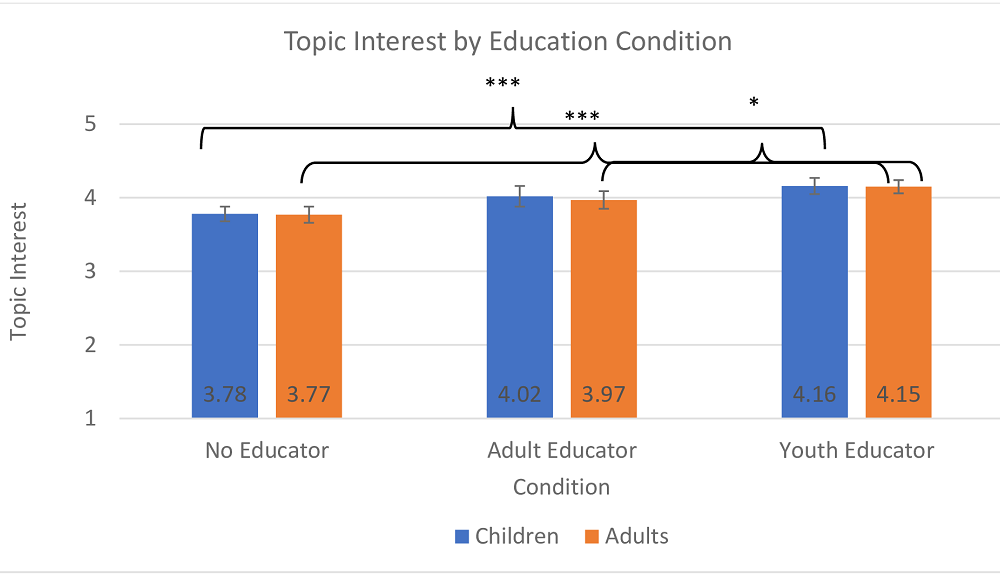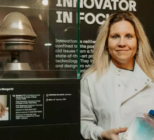Educators at informal science learning sites – science museums, zoos and aquariums – promote not only learning but also broader interest in STEM topics, the new research suggests.
Researchers explored differences in how visitors to six different learning sites in the UK and U.S. reported experiences of learning from an exhibit and how it had changed their level of interest in the wider topic. This was then cross-examined with experiences featuring interaction with a youth educator (aged 14-18 years old), an adult educator (19+ years old), or solely with the exhibit itself.
The results show that visitors aged between five and eight learned more and were more interested than participants in middle childhood or adolescence, and that all young visitors combined (5-17 years old) who interacted with a youth educator reported greater interest and learning compared to those who interacted with the exhibit alone.
Similarly, adult visitors who interacted with a youth educator reported greater interest and learning than those exploring the exhibit alone or with an adult educator.

“Participants in middle childhood (9-11 years old) answered more questions correctly when they interacted with a youth educator, compared to those who interacted with the exhibit alone or were assisted by an adult educator,” explains the report’s co-author, Dr Luke McGuire from the University of Exeter.
“Together these findings emphasise the important role that youth educators can play in learning sites – promoting interest and learning amongst visitors of all ages, along with greater factual recall of exhibit content amongst visitors in middle childhood.”
The paper, Interest and Learning in Informal Science Learning Sites: Differences in Experiences with Different Types of Educators, was written by experts from North Carolina State University, University of Exeter, University of Cambridge, Centre of the Cell, Queen Mary University of London, University of South Carolina, Riverbanks Zoo and Gardens, Virginia Aquarium & Marine Science Center and EdVenture.
The Wellcome Trust and the Economic and Social Research Council provided backing for its UK work, while American contributions came from the National Science Foundation.
The full paper can be read here.










